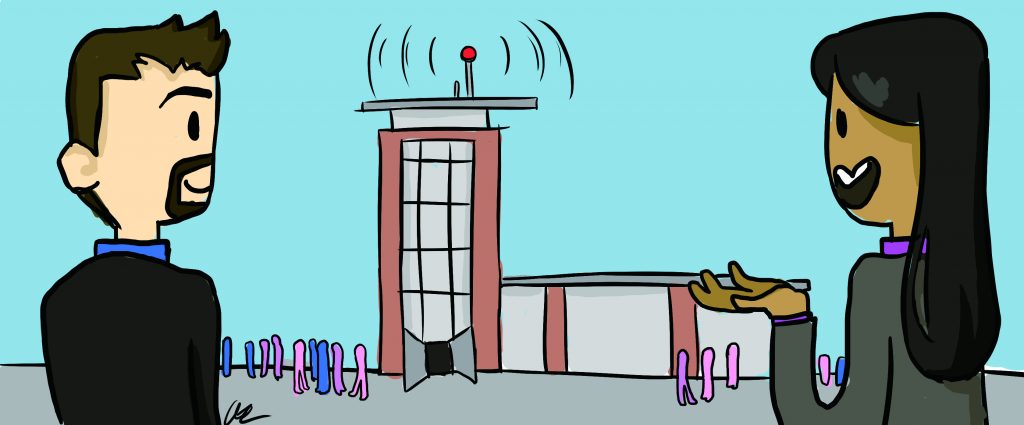The recent University statement regarding developments in the promised security updates addresses much of the apprehension voiced by students in the aftermath of last semester’s tragic events.
As we begin a new semester, the Editorial Board commends the University’s specificity in its solutions to many of the issues plaguing the campus community. For instance, the statement provided an example of a B-Alert message that might be sent out in an emergency situation, which was beneficial because students will now know what to expect from a potential alert.
Other improvements include the installation of antennas to boost service in buildings with poor reception and the addition of security cameras in certain residence communities. While the Editorial Board questions why these communities lacked such measures in the first place and why it took such a drastic event to implement them, we also recognize that this is an important step in the right direction.
Moreover, the University is training employees as well as resident assistants to be able to recognize students in distress. This creates several layers of netting to catch a troubled student before they potentially hurt themselves or someone else. In the same vein, the Decker Student Health Services Center is expanding to include residents from both Elmira and Guthrie, as well as its current United Health Services residents, which will allow for more psychiatric appointments on campus.
The University is also reaching out to the Crime Victims Assistance Center to “bring resources to campus for students experiencing negative impacts of a critical incident.” This organization has both the experience and the specific education to provide resources to BU to help those students affected by the recent violent incidents.
Additionally, teams formed by the administration will monitor students’ social media during potential crises in order to devise a well-informed and useful Frequently Asked Questions page. Though the Editorial Board advises against taking social media chatter as fact, as people don’t often check their sources before punching out a tweet or Facebook post, we applaud this attempt to erase the disconnect between the administration and the larger campus community. In the past, the administration has often appeared oblivious to students’ actual concerns, so we believe that monitoring social media will provide a better idea of what students are thinking.
To this point, it is impressive that the statement includes the names and contact information of the committee leaders. It actually solicits responses from the students, instructing them to send any “idea that [they] think will enhance” to said committee leaders. This cooperation with the student body will only help to inform future improvements to campus safety.
Despite the aforementioned laudable elements to the University’s statement, the Editorial Board still holds some concerns. The statement mentions the Safe Ride Program, a service that provides cost-free rides to students between 9 p.m. and 3 a.m., only to say that it operated during the summer through University Police and will continue this semester through Transportation and Parking Services. It makes no mention of complaints about the service being over-taxed and thus unable to help many students.
We also wonder how summer orientation for incoming students this year reflected the new developments in security, and how it will reflect them in the future. Hopefully the programs incorporated not only its ever-important information about prevention of sexual assault, but also material covering more generalized interpersonal violence. We inquire into the ways the University quelled the fears of students entering into our campus community after the occurrence of such tragedies.
Finally, the statement does little to address the safety of students living off campus. It is unclear what resources are specifically available to them. Though there is an obvious risk that comes with choosing to live off campus, more students live off campus than on campus — it is necessary for many students to do so since residence halls cannot house all of the University’s students. There was little emphasis on off-campus safety in this particular statement.
Overall, it appears that the University is learning and taking steps toward fulfilling its promise to review emergency apparatuses. The specific and reasonable changes outlined leave us cautiously optimistic about the forthcoming improvements to campus safety. We sincerely hope that the University continues to learn from past shortcomings and remains receptive to suggestions and concerns from students.



